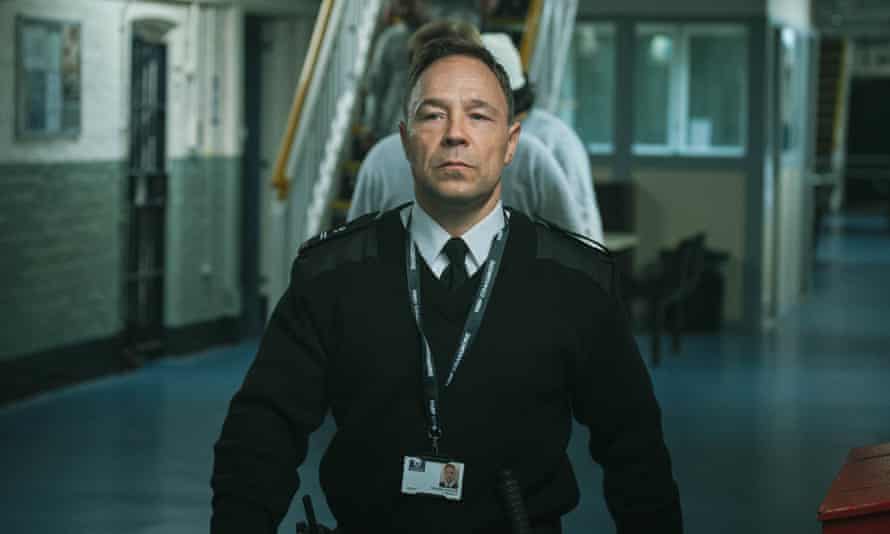What Is The Prison Sentence For Honest Mail Services
I received my first prison sentence in December 1957. I was 14. Set firmly, as I was, on a path of misdeed, I vowed to get to know the workings of the system that held me. In law-breaking, as in life, mistakes occur. And when they did, that knowledge allowed me to survive the 16 years, on and off, I resided in the dangerous prison house system.
I gave up crime in 2003 when, almost by accident, I began writing for this paper about the organization I had left behind. But I have kept my hand in, as it were, on the state of penal play. This has led me to keep tabs on books, films and Tv set shows that claim to present an accurate look behind the loftier walls.
The vast majority of "real-life" accounts have fabricated me switch off pretty quickly. In that location are notable exceptions: the book A Sense of Freedom by Jimmy Boyle, Rex Bloomstein'south fly-on-the-wall TV series on HMP Strangeways and GF Newman's Goggle box drama Law and Order, which included A Prisoner's Tale. All of these had the power to transport me back to the wings. Subsequently a long barren period, there is a new proper noun to add to the list: Time, the three-part prison house drama written by Jimmy McGovern for the BBC.
I tuned in hopeful. McGovern has serious form for pointing out the establishment's oftentimes cruel and unjust fashion of doing things. Time does not disappoint: as usual, McGovern does not permit his audience slip gently into the anarchy. Instead, he slamdunks the viewer, along with the main character, Marker (played past Sean Bean), into a "sweatbox": the cell-like vehicle used to transport prisoners from court to jail. His fellow travellers scream constant obscenities at each other, the guards and the globe in general. A decent society would not transport a dog in this fashion – and yet this scene plays out every twenty-four hours later on court.
Mark, a teacher on the out, is doing a four stretch. It is his start conviction and a universe abroad from the life he left behind. The madness doesn't terminate at the prison gate; the journeying sets the tone for the constant commotion that awaits him within. Inside minutes of his inflow he witnesses a tearing assault; the days that follow do so in suit. McGovern creates scene after scene showing a system in meltdown. Sharing a jail cell, designed in Victorian times to hold ane prisoner, he sees his cell mate "cutting up" or self-harming. In my day, this happened often in women's jails but rarely within the male population. Now, information technology is as common as the drug-taking and everyday violence.
Why? Because many thousands of prisoners with severe mental health bug that, in a simply guild, would be treated with hospitalisation, are caged in environments guaranteed to exacerbate their illness.
All the drug-taking (and the violence that accompanies the highs) shows the corruption that enables drugs to be as hands obtainable inside as on the out. It's a lucrative business that will continue for as long as inmates – and staff – conspire to permit it. McGovern's focus on this takes in the travails of Eric (played by Stephen Graham), a decent prison officer who is also trapped in the system.
McGovern could be criticised for the sheer number of shocking scenes his protagonist witnesses and suffers. Just there is zip in the show that I have not seen showtime-hand during my fourth dimension inside. Shocking incidents exercise occur, only they are bookended by the long periods of tedium and inertia that characterises prison life.

I poignant scene took me back to a rare uplifting experience I had in prison. Strangeways, 1969. A lad (let's telephone call him George) came to my prison cell with a alphabetic character his wife had written him. He asked if I would write a reply, so he could copy it. I knew that then, as now, illiteracy was an outcome. Twice a calendar week, some lads would be called out of the workshops to nourish remedial classes. Some staff thought it amusing to call out "Let'south have the dummies." Hardly an encouragement.
The letter from his married woman was quite personal. I told him the contents were safety with me, just he may not be then lucky next time. And, just equally Mark says to his visitor, I asked George if he wanted to larn? He said yeah. It took near nine months (largely because I would become missing from the fly when I had spells in Punishment Cake, now known as the Care and Separation Unit). Oddly enough, I tin can't clearly recall how I taught him. What I practice remember is the sheer pleasure I felt when, unaided, he wrote his first letter.
I accept told this tale before, at the annual conference of the Shannon Trust, a charity that provides literacy programmes where prisoners who can read and write teach those who cannot. They are needed more than ever.
Fourth dimension is a compelling, honest portrayal of a failed public service; a service that fails those it incarcerates, as well every bit the public who pay for it and suffer the consequences of that failure, not to the lowest degree in the obscenely high reoffending rates. McGovern has, once more, lived upward to his reputation.
What Is The Prison Sentence For Honest Mail Services,
Source: https://www.theguardian.com/tv-and-radio/2021/jun/18/time-former-hmp-inmate-jimmy-mcgovern-sean-bean-stephen-graham
Posted by: howejuserebeaven.blogspot.com


0 Response to "What Is The Prison Sentence For Honest Mail Services"
Post a Comment